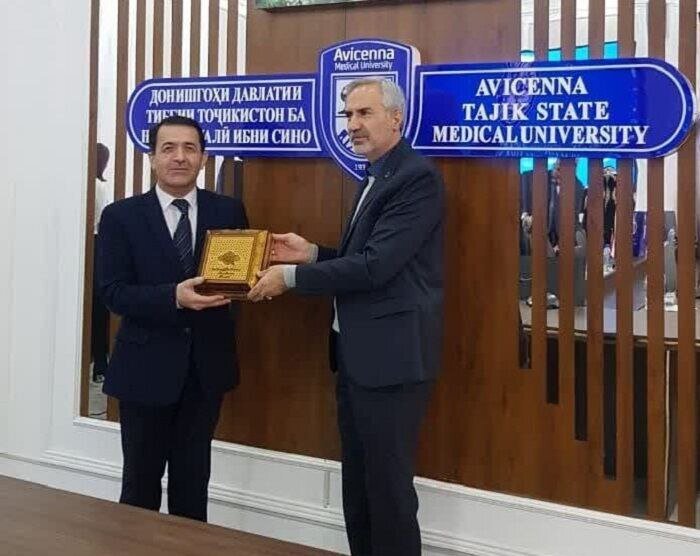Tehran, Dushanbe foster co-op in agricultural biotech, molecular genetics

TEHRAN –Iranian and Tajik officials have agreed to boost scientific collaboration in different fields, including agricultural biotechnology and molecular genetics.
During a visit to Tajikistan, Javad Mohammadi, the head of the National Institute of Genetic Engineering and Biotechnology (NIGEB), held a meeting with Tajik health officials.
During the meeting, the two sides explored avenues for the expansion of scientific relations, particularly in biotechnology, and discussed ways to implement the previously signed agreements, IRNA reported.
“Screening for Down's syndrome, Duchenne muscular dystrophy (DMD), and Phenylketonuria (PKU) as well as manufacturing pharmaceutical products and diagnostic kits are among the main focus of the collaboration,” Mohammadi noted.
It also involves developing joint projects on agricultural biotechnology and molecular genetics, exchanging professors and post-graduate students to further promote cooperation between the two countries, the official added.
Joint pharmaceutical production
In March 2024, former Health Minister Bahram Einollahi and his Tajik counterpart Jamaluddin Abdullahzadeh, in a meeting discussed ways to deepen health ties, especially on launching joint pharmaceutical production lines.
The officials met on the sidelines of the first international congress on family health, which was held in Tehran on March 5-6, the Health Ministry’s website reported.
During the meeting, Abdullahzadeh lauded Iran’s achievements in the pharmaceutical industry, calling for joint production of pharmaceutical products.
“We can also benefit from Iranian professors and experts in the field of education,” he added.
Einollahi, for his part, highlighted forming a joint working group to expand cooperation.
Exchanging professors and students, holding joint scientific conferences, and conducting research programs are among the most important topics of cooperation.
“We are ready to export medicines and medical equipment to Tajikistan. We are also willing to share experiences on family health.”
Referring to Iran’s progress in the field of cancer treatment, he said that the two countries can cooperate in research and therapeutic fields.
Moreover, people of Tajikistan who visit Iran as tourists can further benefit from the country’s medical facilities, he noted.
National Institute of Genetic Engineering and Biotechnology
NIGEB was established in 1989 under the supervision of the Ministry of Science, Research and Technology. Since then, NIGEB has been given a mandate to undertake original, state-of-the-art research activities.
It was established with dual purposes of promoting research in avant-garde areas of biological sciences and biotechnology as well as providing advanced training and educational programs for scientists and students from other universities and academic institutions.
NIGEB is a pivotal hub for advancing the field of biotechnology in Iran, notable for its focus on multidisciplinary collaboration and ethical progress.
Impressively, they engage in both basic and applied research across various biotechnology sectors while considering the implications of technological commercialization and socio-economic impacts.
NIGEB’s commitment to global cooperation and knowledge sharing is essential, particularly in a domain as fast-evolving and globally connected as genetic engineering and biotechnology.
Their work not only propels the scientific community within Iran but also makes significant contributions to international efforts addressing complex issues in agriculture, industry, the environment, and health. This reflects a comprehensive approach to research and education in the field.
MT/MG
Leave a Comment